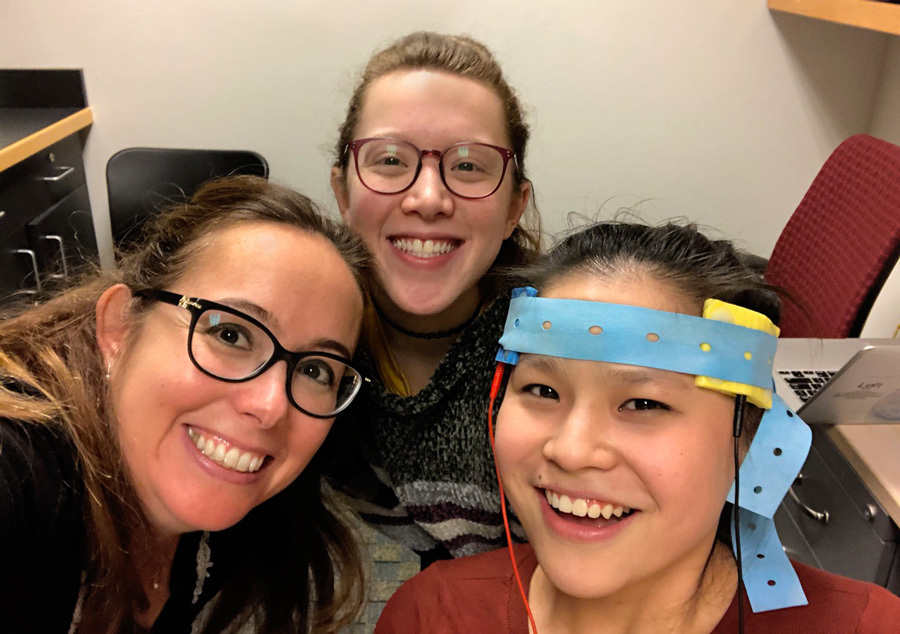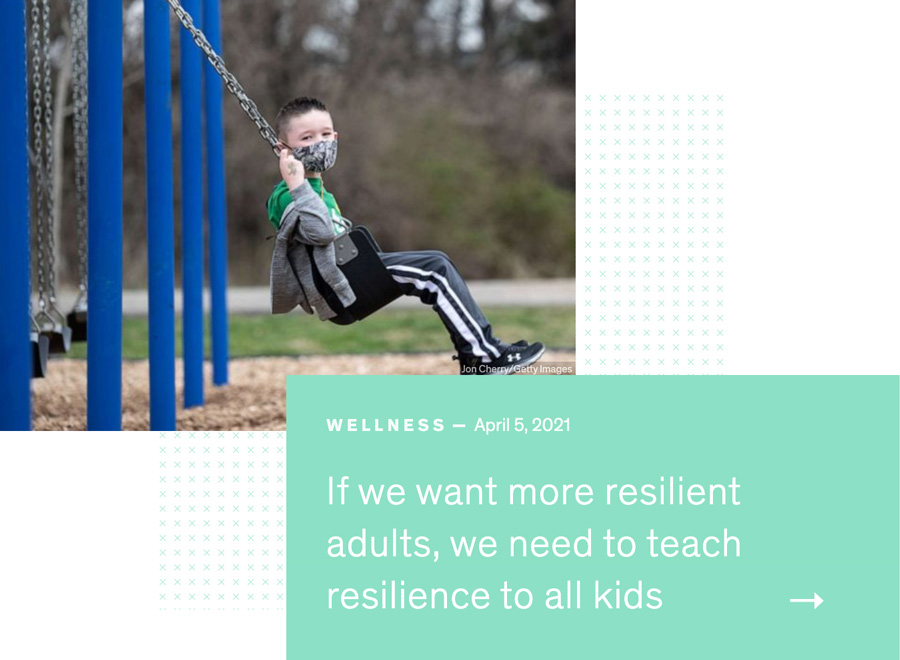Psychology major Reid Anctil is more than familiar with the challenges life—and college—can present. After battling a brain tumor in his second year of college, Reid was not only able to recover his physical health, but also return to Champlain the following year to pursue his degree, including a minor in Business Administration. In this interview, we talked with Reid about his wellbeing toolkit, the benefits of positive psychology, and what resiliency workshops have to offer.


Q: Can you explain what positive psychology is?
A: Positive psychology is a field, but it’s also a mindset. It’s a way of looking at the world and the environment around you and finding the silver lining in what you’re doing in order to make the best of your situation. It focuses on altering your perspective so you become more grateful. Shifting your outlook takes practice, but it can improve your overall wellbeing. Positive psychology can make people more productive—it can even make people happier with their lives. It takes the field of psychology, with its focus on mental illness, and concentrates on mental health instead of mental sickness.
Q: Can you talk about some of the personal challenges you’ve had in your life and how these strategies have helped you?
A: Well, the most glaring challenge I’ve faced was in my second year of school, when I was diagnosed with a brain tumor and I had to take a full year off for treatment and recovery. Even the year afterwards, I still had to recover and re-integrate into the school and get used to my new position on campus. The wellbeing tools were really helpful for examining how to get through each day, how to get through this month, through this tough surgery or this tough treatment, and how to go forward and keep going despite all of the negative things that are going on and thoughts about the future and things like that.
Q: What are some of the challenges that undergraduate students face, and how might well-being strategies help them?
A: Towards the end of the semester, you usually have finals or midterms, and there’s a lot of stuff coming at you. The wellbeing courses teach us how to use different tools during those stressful moments, such as deep breathing, to calm yourself down and keep going.
We discussed something called Zorro Circles, which helps you take something big and break it down into small components so it seems more manageable. Instead of like, “Oh, I’m going to go out and write this 100-page paper about a movie,” you break it down into those small pieces so it’s more, “Oh, I just have to do the introduction today. Oh, I only have to write five sentences here.” That’s how wellbeing helps. It also helps with everyday stress because life doesn’t really follow a set plan. You might have a plan, and then it takes a left turn and you’ve got to figure out how to adapt. Positive psychology and wellbeing are all about looking at how you can adapt and still stay positive despite changes.
Q: Can you describe some of the ways that wellbbeing is infused into the student experience at Champlain?
A: Champlain offers a positive psychology course (open to all students) called Mindcraft: the Scientific Study of Optimal Wellbeing & Life Satisfaction with Dr. Quinn, which is really fun. I really enjoyed it when I took it freshman year.
Through the Mindcraft course, you explore different concepts that go into positive psychology, including tools like mindfulness meditation, deep breathing, and a bunch of fun, interactive things. Plus, everything you talk about, you get to experience. Dr. Quinn brings the tools right into the classroom. One time, she had one of the teachers in the Education & Human Studies (EHS) department who’s really into yoga come in for a class and do yoga with us. Afterwards, we reflected on the experience as a class and how it affects wellbeing and positive psychology. We get to try out these positive psychology tools firsthand to really learn about them.


I’m also currently taking a music and wellbeing course, Music for Health and Wellbeing, with Dr. Barbara Colombo, Champlain’s Psychology Program Director. It’s a course that delves into the psychological uses of music to improve health and wellbeing. It covers all the different ways music can affect people, either by listening to it or participating in it by singing or playing an instrument. It shows how music can be used as a form of therapy to improve people’s wellbeing and help them get through difficult situations. We learn how to use music to assist people through different experiences, like a difficult medical treatment or a neurological disorder. Dr. Colombo has speakers come in every week, each with a unique outlook. We’ve heard from dancers, songwriters, and singers, and it’s just really cool to experience music in all these different ways.
Psychology is a smaller major, so the professors know us quite well. If you need a break, you can talk with any of the faculty. There have been times when the whole class was feeling stressed about something and we mentioned it to the professor, and the professor was like, “Here’s how we’ll change that up,” or “Here’s how we’ll move the schedule around so it work best for you.” And they still teach the things they need to cover, but they’re mindful of where people are at. I think they really try to build breaks into our classes.


Q: Can you talk about your experience with the new resiliency workshops launched at Champlain? What does resiliency mean to you?
A: The resiliency workshops are a collaboration with Champlain, Harvard University, and Mass General Hospital (MGH) in Boston. Every week, Dr. Aude Henin, the clinical director of the MGH Child Resiliency Program, takes us through resiliency training for an hour. It’s always really fun. I look forward to it every Wednesday. It’s like a little break in my day when I get to do resiliency and mindfulness stuff. She’ll review what we talked about the previous week, discuss how we’ve applied it in our lives, talk about it with the group, then teach us a new concept, a new tool that we’ll practice with her in the workshop. She also gives us little assignments to do every week. It’s all about looking at resiliency through the lens of your personal life: how you’ve experienced the different things she talks about and how the resiliency workshop and tools can help you get through the obstacles you’re facing.
For me, resiliency is all about getting through those tough times. It asks you to take the cards you’ve been dealt and make the best of them—to make it through to the next really good thing. It encourages you to take the time to appreciate what you have.
Interested in learning more about studying Psychology at Champlain College? You can explore everything the major has to offer here! Champlain’s program immerses students thoroughly in the various ways they can use their psychology degree. In our Upside-Down Curriculum, students start taking psychology classes from day one and continue them through all four years of their education. That’s four years of exploring career fields, diving into research, and building hands-on experience. They can also choose a concentration that gives them a specific area of expertise.